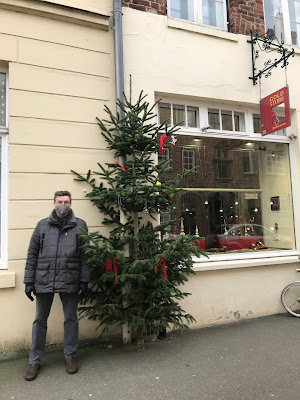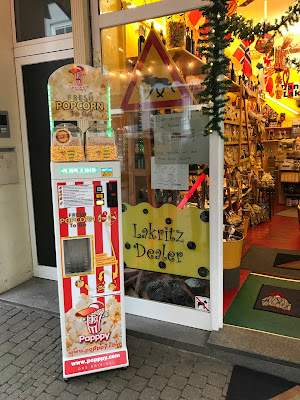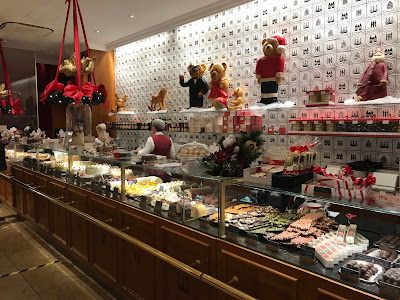Today Lubek Old Town is a UNESCO World Heritage site, a protected city that dates back to the 10th century. It was the main Hansa city among 230 cities connected to the Hanseatic trades. In the 14th century, Lubeck was the largest and most powerful member of the medieval trade organization, the Hanseatic League, an alliance formed for the protection of trading interests. The city was founded in 1143 by Count Adolf II of Holstein and was the first port on the Baltic Sea.
Arriving at the picture-perfect medieval town of Lubeck we are welcomed by the mighty red brick 15th century Holsten Gate with cylindrical towers and arched entrance.
It is known as the City of Seven Spires. Two of them are Lubecker Dom (the city cathedral) and Marienkirche (St. Mary's). Both are the oldest German brick Gothic-style buildings dating back to the 13th and 14th centuries.
Mariennkirche the third largest An allied air raid on March 28th and 29th in 1942 almost completely demolished the church. The Lubeck Cathedral also suffered the same fate. Reconstruction began in 1947 bringing it back today close to its original form. This is one of the many buildings that we did not visit but will return to in the next few weeks. There is just too much history for one afternoon.
Walking along the narrow streets there are many architectural highlights to admire. Several buildings have crow-stepped gable facades similar to classic Dutch.
Peeking into alleyways. Hidden inside are romantic cobbled courtyards.
Window shopping at bakeries. Calorie-free!
Much like Fredrikstadt, Christmas trees line the streets. These trees however look a little naked. Wonder if they will be decorated for our return?
Could that be O Tannenbaum that I hear? Through a muffled mask?
So far I have never enjoyed any popcorn in Germany. I have surely eaten a lifetime amount of it back in
Lubeck the Marzipan Capital of the World.
Within the walls of this world-famous shop, you will find everything marzipan, more than you might have thought existed. The Niederegger shop is believed to date back to the 12th century.
The upstairs cafe and museum were off-limits due to the lockdown but marzipan lovers were not denied filling their shopping baskets with any kind of sweet marzipan treat.
Peter filled "his" basket so we carried home a variety including a baked potato that is really all marzipan. Ready for a sweet-toothed German Christmas! And, for my Duolingo buds - get this: Marzipankartoffeln are
He could have chosen fruit but we both are potato lovers. Alright, say it, sometimes we are couch potatoes.
We didn't bring a famous pig back with us but after eating all of that marzipan, no ho ho-ing, rather an oink
Local Lubeck lore: It is said the origin of marzipan was during the 15th-century famine. Flour was scarce and the senate of Lubeck ordered bakers to find a replacement. We have those resourceful bakers of the time to thank for their brilliant substitute which was the birth of marzipan. No flour for those fellas - they only needed sugar, eggs, and the use of almonds.
When you enlarge this map by clicking on it you will find Lubeck is north and east of the tiny state of Hamburg. There are many historical cities to explore and learn about in Schleswig-Holstein. (the only other state that we are allowed to visit) Truly a great learning experience and the silver lining of the Covid lockdown. Otherwise, we would be off to other far-away places and missing all that Germany holds.














No comments:
Post a Comment